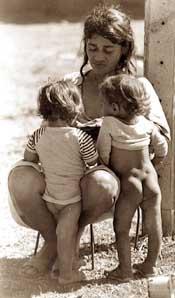 t, Planning and Policy. Nuffield Institute for Health. University of Leeds. 1995
t, Planning and Policy. Nuffield Institute for Health. University of Leeds. 1995Introduction
This dissertation is about under-nourishment (a well-known face of poverty), and one of the most popular means to try to tackle with it: the feeding programmes (and many of the issues related to them).
One of the main reasons why this subject has been chosen is related with my personal experience working as a medical doctor for the Ministry of Health in Peru. My professional career has been always related, directly or indirectly, with the various phases of different feeding programmes. At the beginning it included distributing food commodities of different sources, to the people at the rural health centre. Later on I have assumed different degrees of responsibility at the district, regional and national level, ranging from the implementation up to the formulation, design and evaluation on these programmes. This gave me the opportunity of witnessing the decision-making and non decision-making process in the political arena, especially within the public health care sector.
During this time, I have questioned many of the issues related to these programmes: Why does the under-nourishment exist in a country which one of the main activities is agriculture? Are the feeding programmes the only way to tackle the problem? Are these programmes really necessary? Do they make the difference? Which are the real interest, pressures and criteria for their existence? Whom are those who decide of launching them? Why do we have to receive and deliver donated food commodities? Is it possible tu use our own agricultural production? Why do different feeding programs exist within the same organization or within the same sector? Why are they launched in the same areas and targeting the same population by different, and sometimes the same agencies? Why are the feeding programs organized in an isolated way, and not coordinated with other health programmes or interventions? Why do we have to work with private organizations, like the Non Governmental Organizations? Which is the role of the Ministry of Health?
Ver documento completo en: Tesis de Maestría